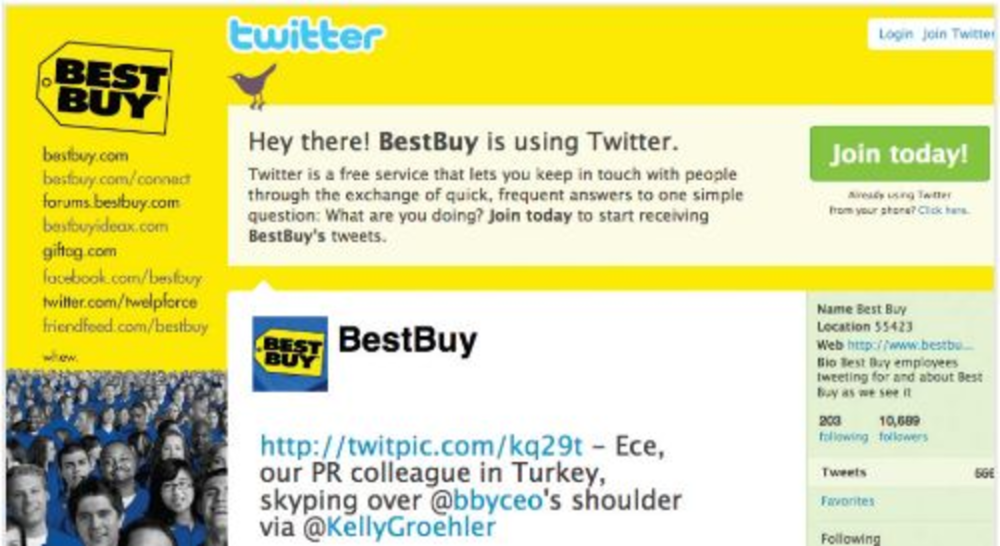Twitter will play a larger role in retailers’ marketing plans this year than in the past, and not only because the social site is much more prominent than it was last year.
“This is definitely the first big holiday season for retailers on Twitter,” said David Berkowitz, senior director of emerging media and innovation at 360i. However, because most retailers are still relatively new to the social media tool, they will likely be limited to unpromoted tests, he added.
An exception is Best Buy, which recently launched a holiday marketing campaign focused on its Twitter-based customer service force called Twelpforce. In TV ads created by Crispin Porter & Bogusky, customers ask questions in a stadium filled with Best Buy sales people, while viewers are directed to Best Buy’s Twitter address. There, they are invited to ask questions of Best Buy employees.
“Any retailer with a disproportionate percentage of sales during the holidays needs to pay attention to Twitter for customer service,” said Berkowitz, who praised Best Buy’s use of the platform for this purpose.
For online retailers in particular, Twitter is important for promoting special deals, said Ian Spalter, creative director for mobile and emerging platforms at R/GA.
“Online retailers can drive a direct call to action, while retailers that have a large number of stores will be focused more on timely content,” he said.
Dell said in June that it had sold more than $3 million in PCs and accessories via Twitter promotions since it began experimenting with the social media tool in 2007. Twitter-based sales for the company appear to have spiked in 2009, since Dell said last December that Twitter-related sales had reached only $1 million.
The focus for bricks-and-mortar retailers will be on “building brands by talking about what they’re doing during the holiday season so they can keep the brand top of mind,” Spalter said.
The increasing use of Twitter coincides with a recent report from Interpret, which shows that Twitter users are twice as likely to review or rate products online than members of social networking Web sites by a ratio of 24% vs 12%. Twitters users are also more likely to visit company profiles than Facebook users and click on advertisements or sponsorships.








